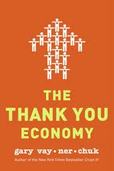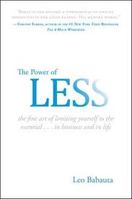|
When medicine kills View more presentations from Max Mednik. This is a talk I gave at UCLA for our first-year communications class. It was inspired by stories I heard from my parents as well as my own personal experience watching my wife go through medical school. You can check out the PowerPoint via SlideShare below. Libby Zion was an 18-year-old freshman girl who had just started attending college in New York in 1984. She was admitted to the hospital with a high fever, and the only physicians who saw her that night were doctors in training known as residents, who had been working close to 36 hours straight and were busy with dozens of other patients. There were medical errors committed along the way, and within 24 hours of being admitted to the hospital, Libby was dead, and her family was mortified. Our current system of medical education is extremely suboptimal and urgently needs to change for the benefit of both patients and doctors. Why should you care about this problem that is rarely discussed? Sooner or later, you and your family are bound to get sick, and your lives will be in the hands of physicians out of your control. For instance, I’ve learned from my wife who is a medical student that June is the most dangerous month to go to the hospital because all of the residents and med students are brand new and are getting their first chance to “treat” real patients. The main counterarguments that aim to keep the medical training system as it is are a tradition of hazing new doctors, keeping costs down by employing fewer doctors, and allowing doctors to have continuity of care for patients without switching off too much, but I will demonstrate from the perspective of patients and doctors that these benefits are not worth their extreme costs. Though some changes have been made to reduce doctor hours to 80 per week with no more than 36 hours in a shift, further changes are still necessary because the problems for patients and doctors remain severe. The current medical training system is extremely dangerous for the patients it is ultimately trying to serve. When you consider the biggest causes of death on an annual basis (according to an Institute of Medicine report), the top four are the usual suspects: heart disease, cancer, stroke, and respiratory disease. But what’s shocking is that the fifth worst cause of death is medical errors, accounting for almost 100,000 deaths each year and costing our economy almost $20 billion, more than diabetes and Alzheimer’s. While most of the other causes of death are natural and hard to avoid, medical errors are by definition preventable. Research studies have shown that well-rested residents outperform tired residents on memory skills, interpretation of scans, and monitoring of patients, and doctors attribute more than half of their mistakes to sleep deprivation and having too many other tasks to do. In addition, a recent study in Nature magazine showed that after 24 hours of wakefulness, cognitive function deteriorates to a level equivalent to having a 0.10 blood alcohol content, 25% higher than the legal limit for driving. If we don’t let people drive their cars at that level, why are we letting them operate on our loved ones? But driving is not the only serious problem for doctors; in fact, it is just one of several severe risks the current medical education system presents for doctors just like it does for patients. According to an article in Academic Emergency Medicine, ER residents are seven times more likely to have a motor vehicle accident due to falling asleep at the wheel during their residency than before it. Not only are doctors physically in danger with the current system, they are also mentally suffering and losing their caring attitude towards patients. A recent New York Times article compared the suicide rates of doctors with the general population. The article showed that the suicide rate was 40% higher for male doctors and a staggering 130% higher for female doctors than general population. The most concerning piece of evidence, though, related to the training system’s effects on doctors comes from a study that reviewed real journal entries of residents. One journal entry stuck out but was representative of many other entries just like it: “It’s 1:00am, and I'm ready to go to bed when there's a code blue. Probably a nice man with a loving wife and concerned children, but I don't want him to live if it means I don't sleep. I just want to sleep.” It goes without saying that if the sleep deprivation is bringing individuals who swore the Hippocratic Oath to such a desperate, inhumane mental state, something is terribly wrong with the training system. Therefore, in order to produce better outcomes for patients and help lower the thousands of deaths due to medical errors like Libby Zion’s as well as to create more safety and caring attitudes for doctors, we need to improve the medical training system by reducing the number of hours doctors work and increasing the amount of supervision. There is plenty of demand to go to medical school, so it is simply about hiring slightly more doctors. There will already be plenty of need for more doctors with universal healthcare coverage and increased healthcare demand. What all of you can do about this important issue is to help publicize the problem and get the word out about it, such as through blogs and talking to any journalist friends you might have. In addition, by writing to your Congressmen and voting on issues related to medical training, you can help to change the system one day. But until that time, don’t go to the hospital in June.
0 Comments
Gary's audiobooks are extremely hilarious, filled with so much energy and personality that really rubs off on you. After enjoying Crush It, I decided to give his latest, The Thank You Economy, a shot. It did not disappoint. It seemed to be somewhat of an extension to Crush It in that it focused on social media marketing. However, it took it one step further and one level deeper by honing in on the concept of customer engagement and WOWing customers, a la Zappos. It made the bold prediction that companies who do not fully embrace a customer-centric culture will be extinct within 5 years. I did enjoy Crush It as a book more. CI seemed way more specific about actual actions and recommendations, while TTYE was more about trends and philosophy. Just like with CI, in the audio version of TTYE, Gary went off script many times, which were often my favorite little bits of the entire experience, updating the readers based on what has gone down since the book went to press and adding in various ad libs and funny non sequiturs. Below are my main notes and takeaways. I do think Gary's right in his predictions, and my personal philosophy has always been to treat others (especially anyone who's a "customer") as critically important. Finding unique ways to wow them like Gary has written is a great way to show this respect. Preface
Ch. 1: How everything changed except human nature
Ch. 4: From the top, instill the right culture
Part 4: Thank You Economy in action Ch. 9: Knowing where people want to go
Part 5: How to win in the Thank You Economy: Care
A quick read (listen) that I enjoyed was The Power of Less by Leo Babauta. It was quite similar to The 4-Hour Workweek and Getting Things Done in its essence, though it was a bit less extreme and less detailed in its methodologies (this was both good and bad). I honestly found the book a bit too general/high-level as it tried to cover a very wide range of topics. The best parts were when the author wrote of his own personal experience and used specific details of life changes he made and how he went about that.
The takeaways I liked best were applying constraints/limits to all aspects of life and choosing the 1-3 big, challenging tasks each day that are required to move towards one's long-term goals, rather than simply doing what's easy and taking care of low-hanging fruit. Introduction
Ch. 1: Why less is better
Ch. 3: Choose the essential and simplify
Part 2: In practice Ch. 7: Simple goals and projects
Ch. 9: Simple time management
|
Archives
February 2023
Categories
All
Subscribe |


 RSS Feed
RSS Feed

